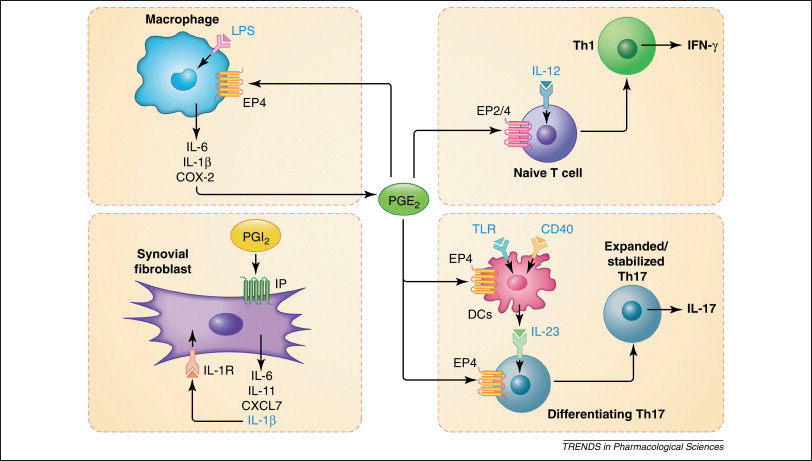- Empty cart.
- Continue Shopping
The Role of Prostaglandins in Inflammation

Inflammation is a natural defense mechanism that helps the body fight off infections and heal injuries. While it’s a crucial part of the immune response, excessive or chronic inflammation can lead to various health issues. One of the key players in the inflammatory process is a group of lipid compounds known as prostaglandins.
What Are Prostaglandins?
Prostaglandins are bioactive lipids derived from fatty acids, specifically arachidonic acid. They act as signaling molecules and are produced by almost all cell types in the body. Prostaglandins have diverse physiological roles, including regulating blood pressure, gastrointestinal integrity, and, notably, the inflammatory response.
The Role in Inflammation
Initiation of Inflammatory Response
When tissue is damaged or an infection occurs, prostaglandins are produced as part of the body’s initial response. They help dilate blood vessels to allow immune cells to reach the affected area more easily.
Pain and Fever
Prostaglandins are responsible for the sensation of pain during inflammation. They sensitize nerve endings, making them more responsive to pain stimuli. They also act on the hypothalamus in the brain to induce fever, another common symptom of inflammation.
Regulation of Immune Cells
Prostaglandins can influence the behavior of immune cells, affecting their migration, differentiation, and release of other inflammatory mediators.
Health Implications
Acute vs. Chronic Inflammation
While prostaglandins play a vital role in acute inflammation, helping the body heal and fend off infections, they can be problematic in chronic inflammation. Conditions like arthritis, asthma, and even certain cancers have been linked to elevated levels of certain prostaglandins.
Pain Management
Many over-the-counter pain relievers, like nonsteroidal anti-inflammatory drugs (NSAIDs), work by inhibiting the enzyme responsible for prostaglandin production. While effective for pain relief, long-term use of these medications can lead to side effects like gastrointestinal issues and increased cardiovascular risk.
Therapeutic Potential
Understanding the role of prostaglandins in inflammation opens avenues for targeted therapies. For instance, drugs that selectively inhibit specific prostaglandins are being explored as potential treatments for conditions like cancer and autoimmune diseases.
Finally, Prostaglandins are integral to the body’s inflammatory response, serving both protective and, at times, detrimental roles. They are involved in initiating the inflammatory process, mediating pain and fever, and regulating immune cell activity. While they are essential for acute inflammation, their role in chronic inflammatory conditions makes them a focus for therapeutic interventions. As research continues to unravel the complexities of prostaglandins and inflammation, we move closer to developing more targeted and effective treatments for a range of inflammatory conditions. Understanding the role of these potent lipid compounds can provide valuable insights into the intricate dance of inflammation, offering clues for better health management.








